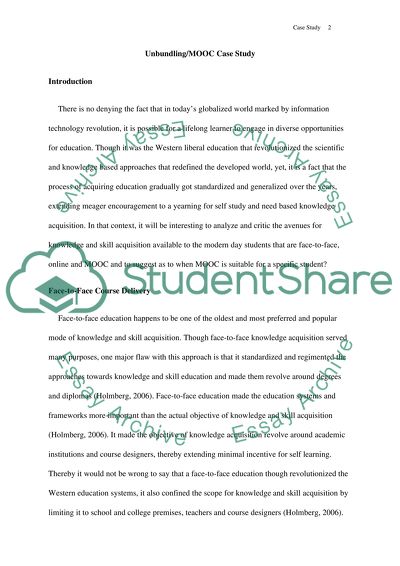Cite this document
(“Unbundling/MOOC Case Study Example | Topics and Well Written Essays - 1250 words - 1”, n.d.)
Unbundling/MOOC Case Study Example | Topics and Well Written Essays - 1250 words - 1. Retrieved from https://studentshare.org/information-technology/1487338-unbundling-mooc-case-study
Unbundling/MOOC Case Study Example | Topics and Well Written Essays - 1250 words - 1. Retrieved from https://studentshare.org/information-technology/1487338-unbundling-mooc-case-study
(Unbundling/MOOC Case Study Example | Topics and Well Written Essays - 1250 Words - 1)
Unbundling/MOOC Case Study Example | Topics and Well Written Essays - 1250 Words - 1. https://studentshare.org/information-technology/1487338-unbundling-mooc-case-study.
Unbundling/MOOC Case Study Example | Topics and Well Written Essays - 1250 Words - 1. https://studentshare.org/information-technology/1487338-unbundling-mooc-case-study.
“Unbundling/MOOC Case Study Example | Topics and Well Written Essays - 1250 Words - 1”, n.d. https://studentshare.org/information-technology/1487338-unbundling-mooc-case-study.


